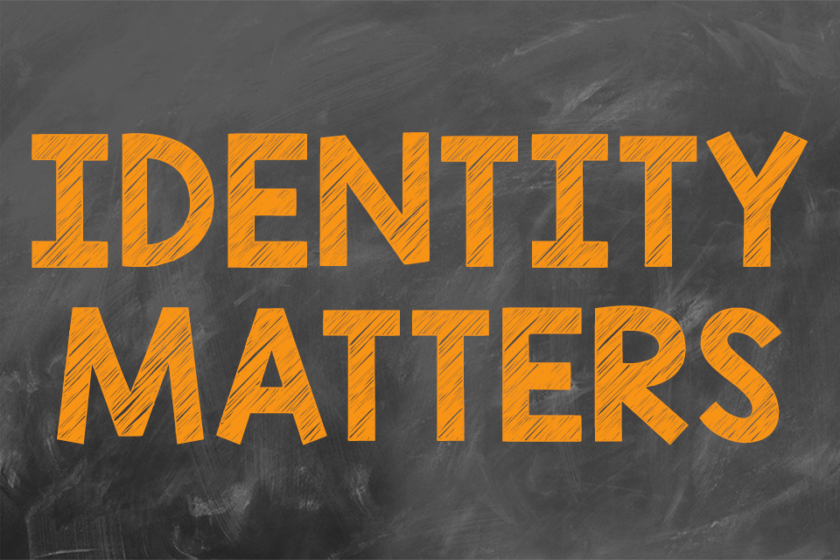
UConn’s Center for Career Development has had a long-standing commitment to delivering innovative and inclusive programs and services for all students. Recognizing that our diverse students continue to face new and on-going challenges, we set out to learn more about our students’ experiences through a DEI lens, and to evaluate how well our existing services are meeting their needs.
In 2021, we facilitated a 40-question long survey and received 1,538 responses in 35 days. The primary focus of the research was identifying unique career experiences facing affinity groups, and ways in which the Career Center can provide support to each group. The survey was anonymous, voluntary, and sent out to all UConn students.
Overall Results
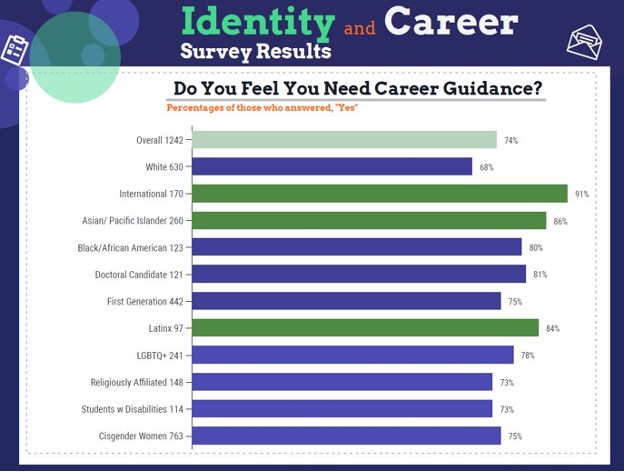
One of the first takeaways from the survey is that an overwhelming majority of students reported needing career guidance, with the highest percentage being among international, AAPI, and Latinx students. It is also important to note that the percentages reporting “yes” of all affinity groups were higher than the percentage of white students.
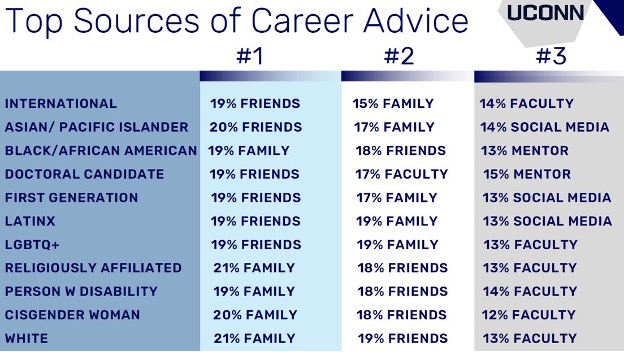
When asked where they tun to receive career advice, family and friends were by far the top two answers for each affinity community. Besides family and friends, we saw some affinity communities relying on faculty, mentors, and social media for career advice.
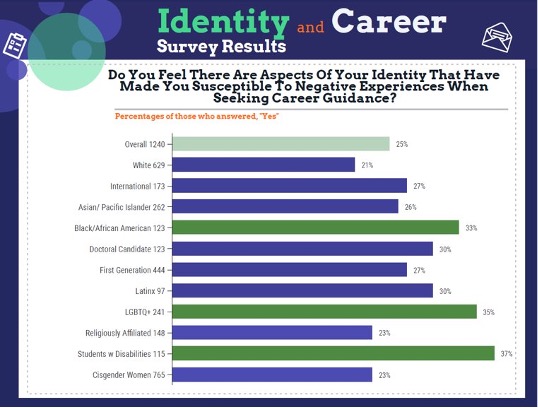
When asked whether they felt aspects of their identity have made them susceptible to negative experiences seeking career guidance, students with disabilities, LGBTQ+ students and Black/African American students most commonly responded “Yes.” The percentage of students reporting “Yes” was higher among every affinity community than among white students.
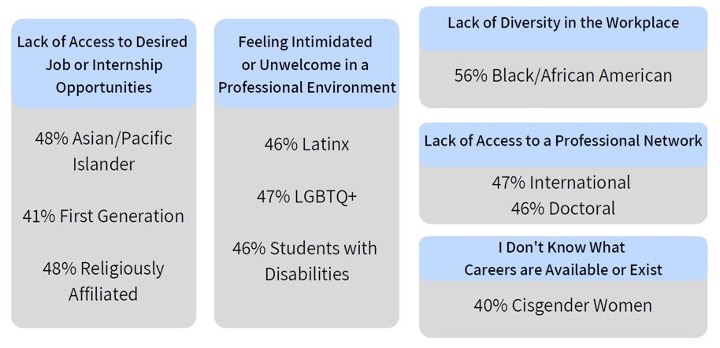
Building on the previous question, students were asked what their top career concern was. The top concerns by affinity community are listed here. The two most common concerns were lack of access to desired job or internship opportunities and feeling intimidated or unwelcome in a professional environment.
Results by Affinity Community
To see some of the results broken up by affinity community, please click the corresponding links below. These presentations were created in the fall of 2021 and were shared with various campus partners who serve each affinity community.
Please note that there were a few affinity communities we did not have enough data to draw conclusions for: native and indigenous students, undocumented students, veterans and service members.
Asian American and Pacific Islander Students
Takeaways & Next Steps
Based on our analysis of the data, some of our key takeaways overall were:
- Most students across affinity groups reported a need for career support, with the highest percentage in Latinx, AAPI, and International students
- The greatest need for support lies with serving LGBTQ+ students, Students with Disabilities and Black/African-American students
- First generation students fell in the middle on every question
- Themes were not unanimous among affinity communities; career concerns varied
- Students turn to their immediate network for career support
We recognize that it will take a very long time to address every response gathered from the survey, however we have made sure to address as many as we can as quickly as possible. Some of the immediate actions we have taken since concluding the survey are:
- Established a DE&I Career Ambassador Program
- Wrote new and more relatable staff bios on our website
- Addressed some of the qualitative responses from the survey directly in blog posts on our website
- Increased marketing of resources for specific affinity communities
- Intentionally partnered with student organizations to host events and resources
- Produced video introductions for each affinity community webpage
- Implemented monthly training sessions for staff on DE&I-related topics
- Added at least one DE&I-focused session to the training schedule for career champions each semester
To learn more about any of these initiatives or to share any feedback, please reach out to the Center for Career Development at career@uconn.edu or (860) 486-3013.
